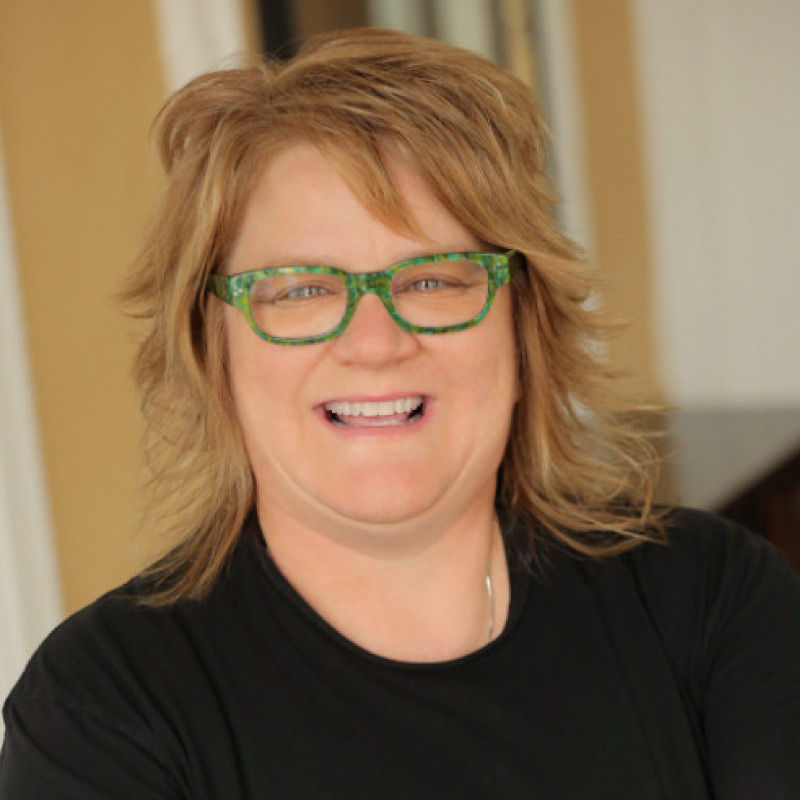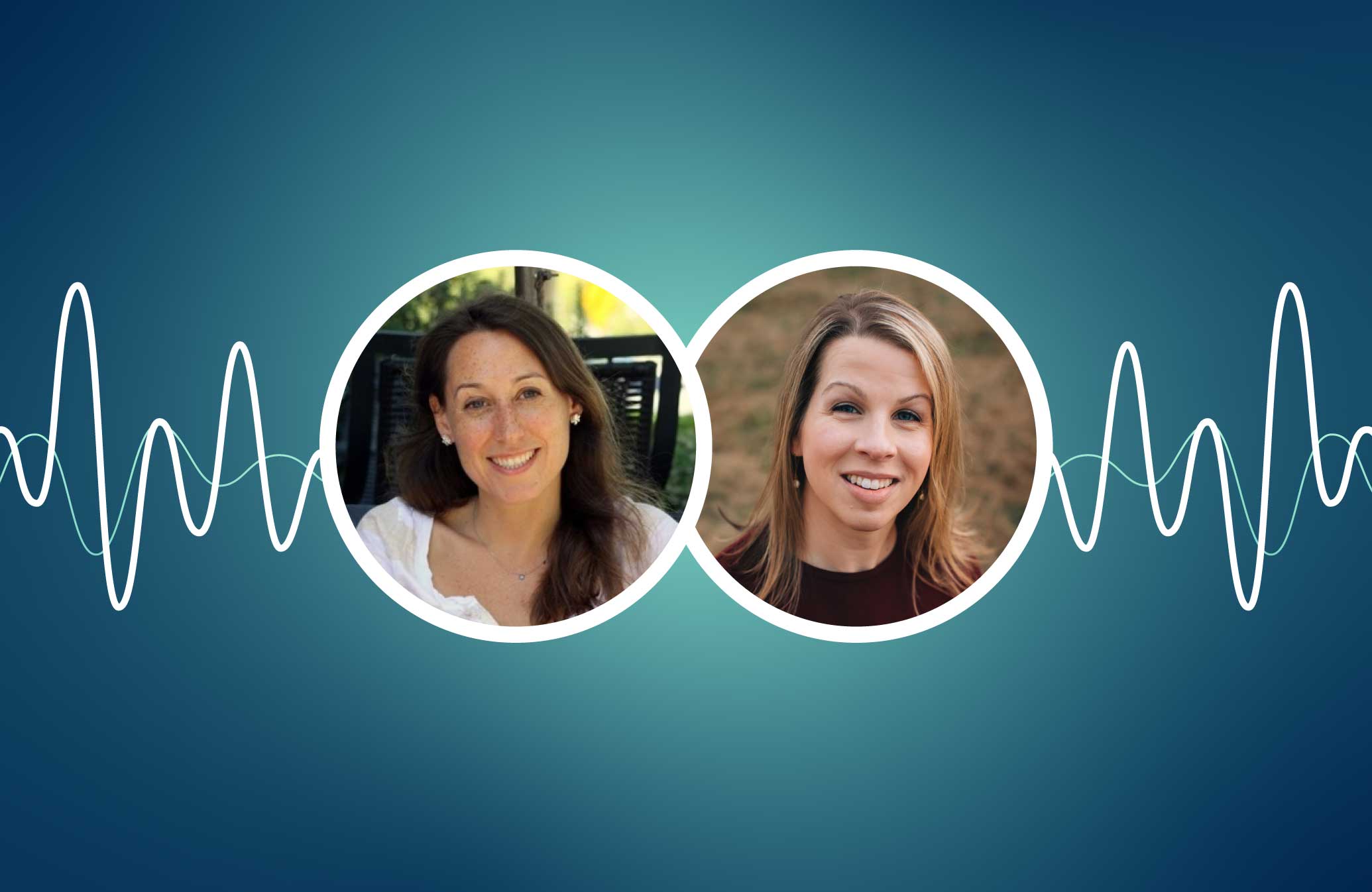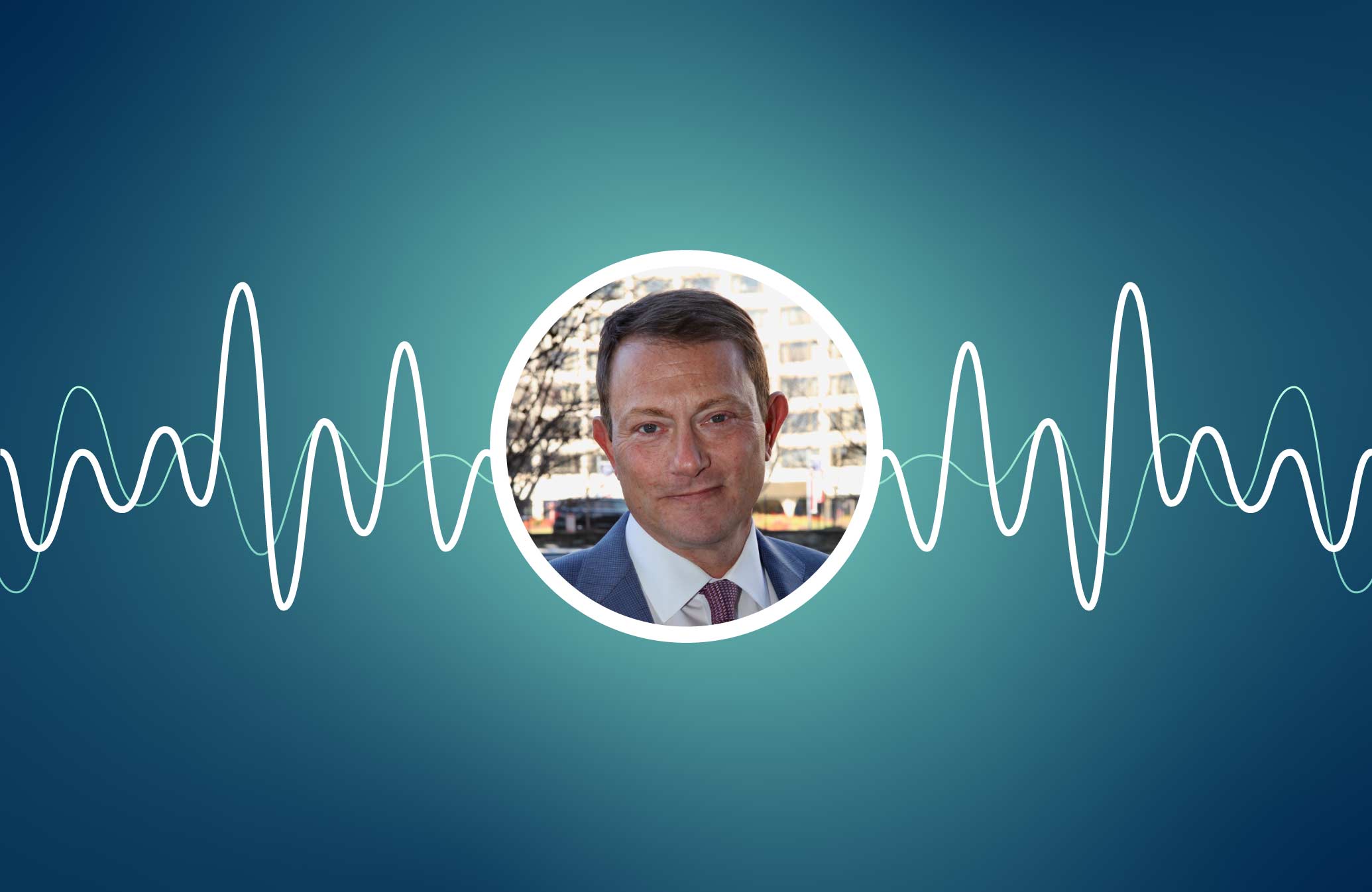Listen Now
Episode Transcript
Announcer [00:00:00] Welcome to RadioRev, podcasting from the heart of healthcare in Minneapolis, Minnesota. This is the podcast for change makers looking to do more than just health engagement. It’s about getting people to take action and do things that actually improve their health. It’s a radical idea, right? So we’re talking with the leaders, innovators, movers, and shakers who are bringing new ideas, inspiring others, and leading the way.
Jenn [00:00:26] Today, Icario CEO Jeff Fritz is talking with Rev Up 2019 keynote speaker Nancy Lyons. Nancy is a CEO, entrepreneur, and opinionated individual who loves to talk about work, work culture, and progressive ideas. She speaks locally and globally, but most frequently on Twitter as @nylons. And we’re excited to have her joining us on RadioRev today. Welcome to the show.
Nancy [00:00:49] Thank you. Thanks for having me.
Jeff [00:00:52] Well, Nancy, this has been something that’s been on my calendar for a while, and I’m excited to get connected with you ahead of the Rev Up conference since you’re going to be doing a little presentation for us. But we like to start these things with a little bit of a fun personality connection or a little peek into your radio dial. What’s your favorite ’80s song?
Nancy [00:01:19] Probably “Purple Rain.” I mean, that whole album was really instrumental in my life. It was just a really formative time. And that was the soundtrack for some of the best, probably most awkward moments of my life. I love Prince. {music plays}
Jeff [00:01:52] Were you a child of the ’80s?
Nancy [00:01:54] I sure was. Yeah.
Jeff [00:01:55] And were you, are you, a Minnesota girl?
Nancy [00:01:58] I’m not. I actually grew up in the Upper Peninsula of Michigan, so I’m a Yooper.
Jeff [00:02:02] A Yooper, all right! Well, I can relate. I’m a Minnesota native. Purple Rain was definitely on my—it was probably a cassette tape that I had of that recording. Did you happen to see him play at the Super Bowl? Did you see that halftime when it started raining?
Nancy [00:02:27] Oh, yeah.
Jeff [00:02:30] The purple lights. I still say that’s the best halftime show I’ve ever seen.
Nancy [00:02:34] Yeah. He is the person that I’ve seen in concert the most. I’ve probably seen him like nine or 10 times, and every single time was religious. That Super Bowl performance was no different. I just think he is probably one of, if not the most talented musician, artist, weirdo who ever walked on the planet. He was just an amazing talent.
Jeff [00:03:04] Yeah, agreed. Awesome. Well, switching gears here, tell us about what you’re working on. This Clockwork Interactive is very interesting. Can you just give us a little bit of an update on what you’re working on?
Nancy [00:03:19] Sure. Well, Clockwork is an experience design and technology agency, and we build digital business strategy and solutions and products for the enterprise. So we work with clients in helping them transition their businesses to digital businesses. And that could be anything from websites to applications to environmental experiences. We’ve got a really interesting portfolio of digital experiences in buildings and spaces. And every client comes to us with something different. We have a deep bench in helping low-tech companies really compete in this new marketplace. And that can look like a lot of things, from change management to organizational development to customer experience and customer experience design to websites and commerce experiences, database backend integration, sales enablement, digital tools for sales teams to sell and engage customers better. So it’s a relatively broad menu, but it’s 100% digital most of the time.
Jeff [00:04:35] That’s cool. That’s really cool. And, you have in your business this notion of cultivating human-centered cultures or human-centered design. Can you speak a little bit about what that means to you and the business and your customers, and how you’re seeing that come up as a new way of thinking or connecting with people?
Nancy [00:05:06] For sure. I think that the internet changed how we behave. It changed us as people, and it changed our expectations of brands. Years ago you could publish an ad or produce a broadcast piece and expect to engage the audience. Now, engagement is two way. You have relationships with people. And I’m a big believer that those relationships start internally in the organizations where people spend their days. If I am working intentionally, I’m building a culture that is really centered around the people that I work with. It stands to reason that if I make them happy, if I work and care for my internal teams, that their happiness and satisfaction and their feeling of being valued will extend to our customers. And by extension, our customers will also feel valued, and their experience with us as an organization will benefit. So cultivating human-centered cultures really just means being intentional about culture. I think it’s only been in the last few years that we’ve heard so much conversation about culture. But for the most part, we think culture happens sort of organically. It just happens. We hire fun people, and then our culture is fun. But you have to be intentional. You have to decide what you want. How do you want it to feel? And one could argue that how your business feels when you walk through the door, what kind of energy am I experiencing in meetings, what does this place feel like—that’s culture. And I think we confuse culture a lot with benefits. How much are they going to pay me? What does my insurance look like? And people don’t make decisions based on benefits anymore. They make decisions based on how rewarding the experience is, how knowledgeable and challenging the team is, what they’ll learn, and how they might advance in their careers. There are all sorts of factors that really have a lot to do with focusing on people that play into how people decide where they want to work and how they want to invest their time.
Jeff [00:07:19] Oh, that’s fun. That’s good. That’s good stuff. I’m glad to hear you speak about it, because I think it’s really…I’ve noticed a transformation of expectations of the employer-employee relationship. Employer being a company, not simply a person, but a company where people show up to work. It could be a bit of the low unemployment that we have that is helping spur that on versus a high unemployment. There might be perverse treatments of people that need to work that don’t want to work there. Here we have to compete and create cultures where people want to work and show up to perform and do what they’re really talented at. I think what you’re speaking to really resonates with me as somebody who works hard to attract good people to be part of our team.
Nancy [00:08:24] Sure. That’s great.
Jeff [00:08:26] A lot of the stuff that you’re talking about is focused on innovation, and in the healthcare space it’s always a challenge. I like to say healthcare is always about 10 years behind the rest of the world, if not more. And there are lots of reasons for that. Good reasons for that. And some not so good. But from your view, how do we, as a group of people trying to impact how healthcare innovates, how do we start small and build it to make a big impact? If you have some thoughts on that?
Nancy [00:09:12] Sure. I think the best way to start is to be self-focused. I think that when we talk about transformation, especially digital transformation, we think large scale. And we often think that if we invest in a certain kind of technology, we will change how we sell, how we engage, how we interact. And we get confused, right? We believe the technology will solve our problems. And the truth is, technology is a tool to achieve an objective. But it isn’t the relationship. And so I do think that just a tiny shift in how you think and the willingness to want to change—humans tend to default to our routines. We like what we do every day. We like things being predictable. It feels better. We have command. We have a skill set that is built for routine. And we don’t like change. But unfortunately, this digital marketplace that exists today means that we are in constant flux. Things are changing every day. And I think just really working on your personal adaptability and recognizing that you might get thrown curveballs every day, and your attitude, the energy that you bring to your interactions with your fellow team members, to your interactions with leadership, to your interactions with customers or patients—all of that, the energy in those exchanges matters. And if you don’t bring your frustration with change to those exchanges, you’re actually contributing to a positive, open, adaptable work environment. And that matters. So I think an easy start is just to examine yourself, your own behaviors and how you respond to change. And if it’s negatively or if it’s in a frustrated way, then think differently about how you can show up.
Jeff [00:11:23] It makes me think a little bit about…the meetings. You show up and there’s a conference room table with eight people and chairs and all the laptops crank open. I’m not really sure what the screens are. The leader of the media says, “Well, pull it up.” And they pull up this PowerPoint deck, put it up on the screen. And what it makes me think of is, are there digital tools out there that have actually inhibited our skills around connecting with people?
Nancy [00:12:07] Absolutely. My team has heard me say dozens and dozens and dozens of times that if I come to a meeting that you scheduled, and all you’re doing is reading from a presentation, and you’re not bringing energy, and you’re not engaging with people where they are, I’m going to bulldoze you because nobody likes those meetings. Nobody wants to show up there. And we’re sending a message to our clients that says we can phone this in. We don’t have to be present. And I’m not in favor of that. I think that we want to abdicate responsibility for things like meetings and agendas and thinking to templates, and you can’t template relationships. So I do think that some digital tools have caused us to sort of lose some of our humanness in interactions. And we have to bring that back and think about how best to use those digital tools and when and if they’re even necessary.
Jeff [00:13:10] Yeah, then I start to think about the patient experience or the member experience with your insurance company, they call them members. How did those members…how are they showing up? We work with this thing called ‘member abrasion,’ where in the in the old-old days, you would talk to the doctor, and then the financial terms would just happen behind the scenes. So it was really a patient-doctor, in-person experience to receive care. And as we’ve gone further along and costs have increased, there’ve been digital tools deployed to try to manage the care and then the insurers start to say, “Well, we’ve got to take that on because that’s really impacting how we do business.” And so then there’s this deployment of communications that just starts to hit members and patients from all different angles to a point where they feel an abrasion. They feel almost insulted. I call it ‘carpet bombing.’ They’re getting bombed from all angles with impersonal messages. How do we swing the pendulum back? Not to discard digital, but how do we be personal?
Nancy [00:14:55] Healthcare—I have a lot of opinions about healthcare. I think, quite honestly, healthcare is struggling probably the most of any industry, primarily because we don’t expect much humanity. Of all the industries that are lagging behind, healthcare is probably struggling the most because we have an expectation of care in healthcare. There’s an expectation of humanity in healthcare. And what’s happened over…it wasn’t that long. My mom’s a physician. She’s 82 years old, and she has not been practicing since she was 72. So 10 years. But it was only in the last 30 years that she had very personal relationships with her patients and their care was between her and them. And the reason she was grateful to retire when she did, and the reason she got out of even private practice, was because medicine was changing, and the care piece became the machine’s problem. And people feel that. They don’t trust healthcare. They don’t understand it. They feel like they get the runaround. And a lot of that runaround comes from the tools that we put in place to take the place of relationships. So people don’t understand. They’re told that these digital tools should make their experience more convenient, easier, and more useful. But the truth is, it creates a barrier between them and their care. It gets frustrating. Some people avoid it altogether. And I can’t even imagine how senior citizens feel, not being digital natives and having to navigate this landscape. So I think healthcare is a space where we’ve really sort of lost sight of what’s most important. And, like I said, I have strong opinions, so stop me if you must. But I think about nurses. Nursing is an undervalued profession, but they are the frontline customer service professionals in the healthcare industry. They are not just providing care. They are the interface with our customers, with the people that pay us in healthcare. And yet they are constantly trying to get the culture of healthcare to value them. And I think that’s indicative of a much bigger problem. So transformation would start, in my opinion in the healthcare space, with valuing humans and really being selective about how you layer in digital tools and for what audiences are they really most effective? I think that’s an important question to ask.
Jeff [00:18:00] Yeah, that’s a great point. And I totally agree with you about using digital tools not to replace the human, but to make the human interactions more powerful or more knowledgeable about the conversations, more efficient with their conversations and time. We see a lot with call center operations. I was visiting a call center and I saw, it was probably 250-300 people in a call center. And I asked the business lead that I was talking to, I said, “So what are the credentials of all these people that are on these phones?” And he said, “They’re nurses. They’re all nurses.” And I said, “Well, that’s really cool. Now, how are they spending their time?” He said, “Well, right now they are all reading off a script to call off of the automatic dialer to get people to answer some questions.” And then we got into the conversation of was that the best use of their time? Are they really practicing at the top of their licensure by reading a script? Can we have something else help collect that information in another way and use these really talented humans to get…when they do get on the phone or get in-person with somebody that it’s really impactful, that there’s this practicing at the top of their licenses is the best way I can think of it. And so it really hit home what you’re talking about, hit home with this idea that this blend of humans is at the center, but really supported in the right way with technologies. There’s a real opportunity in healthcare.
Nancy [00:20:17] For sure. The tools are a complement. They’re not instead of, they’re in addition to the care itself.
Jeff [00:20:24] Right on. So tell me something cool you’ve been working on lately. Something you’ve done lately that doesn’t even have to be work related. Something cool or fun that was exciting to you.
Nancy [00:20:35] Sure. Last week I was in Montana, and I had a really cool day trip in Yellowstone. It was fabulous. I got to see Old Faithful. I got to see Yellowstone Lake and the Yellowstone Grand Canyon, the Grand Canyon of Yellowstone, with all the different layers of sediment and colors and that beauty. I had an awesome tour guide who knew all the history of the park and knew some great Native American legend stories. It was a fantastic day. It was really good.
Jeff [00:21:18] Good for you. I like to say, “Moments like that make me feel small.” And when you can feel small in the world, you come back and what was a really big issue or challenge sitting on your desk starts to look a little bit more manageable.
Nancy [00:21:38] So true.
Jeff [00:21:41] That’s great. Thanks for sharing that. Can we get a little taste of what our attendees will expect at the talk? You have a talk that’s called “Healthcare Digital Transformation Isn’t Digital After All.” You’ve been sharing some of the ideas around this, but maybe a little bit more on that?
Nancy [00:21:59] Yeah, we’ve definitely hinted at what we’re gonna be talking about in the conversation. I always like to remind people that nobody is going to teach them anything new. We’re going to remind them of things that they’ve forgotten and hopefully will shift their thinking just a little bit so they walk away with a handful of ways in which they can think differently about their work and how they respond to it, how they engage with each other, and how they engage with customers. And that thoughtfulness will change energy. And it will engage other people in that energy. And I think that can be a really powerful and simple tool, culture reset. I think it’s a big opportunity for people with a little amount of effort. And I also think that we’re going to laugh. I work really hard to make these conversations funny and upbeat, and I think people will leave feeling inspired and entertained. And that’s all we can ever truly want from a speaker. I also never want people to feel talked at. I want them to feel included. And I work really hard to do that. And I’m looking forward to doing that with this audience.
Jeff [00:23:21] It sounds very human.
Nancy [00:23:23] Yeah, I do my best. Not a robot.
Jeff [00:23:28] Sounds great. “Hi, we’re going to laugh a little bit. We’re going to talk about how to be authentic and human with each other and bring some strategies and tools back to your workplace or the clients that you work with.” That sounds awesome. That sounds like a great talk that everybody is going to appreciate. In wrapping up, I just want to thank you so much for taking time today to put a few thoughts online so that some of the folks that will be joining us and some of the folks that won’t be able to join us can listen to you ahead of the Rev Up conference.
Nancy [00:24:12] Yeah, I’m really looking forward to it. I appreciate you having me today, and I appreciate you inviting me to be at the conference. And Nacho, my dog, appreciates your time today, too!
Jeff [00:24:22] You might just want to bring Nacho. You know, it’s going to be a dog-friendly hotel. You could probably bring Nacho up on stage with you, and you’d probably get a little bit more relaxed, get a more relaxed feel in the room with the dog up there.
Nancy [00:24:35] I might just do it. Don’t tempt me.
Announcer [00:24:39] Thanks for joining us for the RadioRev podcast, brought to you by Icario. If you found today’s conversation as informative and energizing as we did, please take a moment and subscribe to the podcast. As always, we invite you to learn more about us and check out all of our content at dev-revel-health.pantheonsite.io/RadioRev.
Inside the Episode
Revel CEO Jeff Fritz is talking with Rev Up 2019 keynote speaker, Nancy Lyons. Nancy is a CEO, entrepreneur, and opinionated individual who loves to talk about work, work culture, and progressive ideas. She speaks locally and globally, but most frequently on Twitter as @nylons.
In this episode, Nancy gives us a sneak peek into her Rev Up 2019 keynote presentation and discusses the following:
- Cultivating a human-centered culture
- How to innovate by starting small and building to a bigger impact
- The relationship between healthcare and digital transformation
To keep the conversation with Nancy going, connect with her on LinkedIn.
“Technology doesn’t change behavior—it supports it.”

Nancy Lyons
CEO and Founder at Clockwork
Can’t get enough of RadioRev?
Check out all of our episodes to stay up-to-date on the latest in healthcare innovation, social determinants, and health action.




